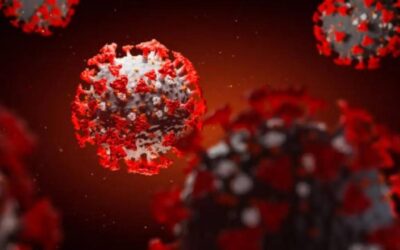US researchers develop new antibody that shows promise against malaria infection
A novel monoclonal antibody, developed by US researchers, has shown promise against malaria infection in an early clinical trial.
Researchers at the University of Maryland School of Medicine`s Center for Vaccine Development and Global Health (CVD) found that the antibody — MAM01 — provided dose-dependent full protection against the malaria parasite with minimal side effects.
“This new monoclonal antibody could transform how we prevent malaria in young children and pregnant women,” said lead author Kirsten E. Lyke, Professor of Medicine at the varsity’s School of Medicine.
“Unlike vaccines that may require multiple doses or boosters, a single injection of a long-acting antibody could provide immediate, months-long protection. It`s a fundamentally different way to stop infection before it starts,” she added, about the research.
The malaria disease remains one of the leading causes of death among children in sub-Saharan Africa, claiming more than 600,000 lives each year worldwide, with limited efficacy in currently available treatments and vaccines for it.
Monoclonal antibodies (mAbs) are laboratory-made protein clones that mimic the body`s natural immune defences.
The study, published in The Lancet Infectious Diseases, showed that MAM01 targets a highly conserved region of the Plasmodium falciparum circumsporozoite protein — a protein on the parasite`s outer surface — to block infection before it reaches the bloodstream.
The Phase 1, double-blind, placebo-controlled trial enrolled 38 healthy adults aged 18 to 50 with no prior malaria exposure.
Participants received one dose of MAM01 or a placebo and were then exposed to mosquitoes carrying malaria, several months after dosing. This was done under carefully controlled conditions known as a challenge study.
After the malaria challenge, none of the participants who received the highest dose of the monoclonal antibody developed infection, compared to all the participants in the placebo group. No treatment-related serious adverse events were observed.
“These early results suggest that this monoclonal antibody can provide reliable protection against malaria, which continues to disproportionately affect children who live in low and middle-income countries,” said co-author Matthew B. Laurens, Professor of Paediatrics.
“This is an important proof-of-concept for the field and a step forward for health equity,” he noted.
This story has been sourced from a third party syndicated feed, agencies. Mid-day accepts no responsibility or liability for its dependability, trustworthiness, reliability and data of the text. Mid-day management/mid-day.com reserves the sole right to alter, delete or remove (without notice) the content in its absolute discretion for any reason whatsoever.
Search
Recent
- Spice of life | Between joke and jab, way out of Moravec’s paradox
- Scientists hope underwater fiber-optic cables can help save endangered orcas
- China helps Pak launch satellite: Third such mission this year – what is remote sensing satellite?
- Spice of life | Between joke and jab, way out of Moravec’s paradox
- Spice of life | Between joke and jab, way out of Moravec’s paradox


